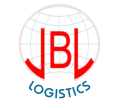Pharmaceutical & Healthcare Logistics Solutions
The pharmaceutical and healthcare industry demands precision, reliability, and compliance at every stage of the supply chain. Unlike traditional logistics, healthcare logistics is not just about moving products—it’s about safeguarding lives. From temperature-sensitive vaccines and biologics to life-saving medicines and medical equipment, every shipment must maintain its integrity, security, and traceability. Modern pharmaceutical logistics solutions integrate advanced technology, specialized infrastructure, and regulatory expertise to ensure the highest standards of quality and care.
1. Importance of Specialized Logistics in Healthcare
Pharmaceutical logistics requires more than transportation—it demands an ecosystem built on accuracy, monitoring, and compliance. Medications, vaccines, and other healthcare products are often sensitive to temperature, humidity, and handling. Even a slight deviation can reduce their efficacy or render them unsafe for patients.
To meet these challenges, logistics providers deploy Good Distribution Practice (GDP) and Good Manufacturing Practice (GMP) standards, ensuring that every stage—from manufacturing to delivery—meets strict regulatory controls.
2. Cold Chain Management
One of the most critical components of pharmaceutical logistics is cold chain management. Many vaccines, blood products, and biologics must be maintained at temperatures ranging from –80°C to +8°C.
Advanced logistics systems use real-time IoT sensors, GPS tracking, and data loggers to monitor temperature, humidity, and location throughout the supply journey. If there’s any deviation, alerts are sent instantly so corrective action can be taken. Cold storage facilities, refrigerated trucks, and temperature-controlled packaging play vital roles in maintaining product stability from origin to destination.
3. Compliance and Regulatory Adherence
Regulatory compliance is at the heart of healthcare logistics. Organizations must adhere to regional and international standards such as:
- WHO GDP Guidelines
- US FDA 21 CFR Part 11
- EU GDP for Medicinal Products
- ISO 9001 and ISO 13485 for Quality Management
These standards ensure product integrity, traceability, and accountability across the supply chain. Leading logistics companies employ quality assurance teams to perform regular audits, document handling, and maintain compliance with all applicable laws and certifications.
4. Technology-Driven Solutions
Digitalization has transformed pharmaceutical logistics. AI, IoT, and blockchain now enhance transparency, predict risks, and prevent losses.
- Artificial Intelligence (AI): Predicts demand, optimizes inventory, and reduces stockouts.
- Blockchain: Ensures secure, tamper-proof tracking of shipments.
- IoT Devices: Enable real-time monitoring of temperature and location.
- Automation and Robotics: Streamline warehouse operations, ensuring efficiency and accuracy.
These technologies help minimize errors, optimize costs, and ensure timely delivery—even during global disruptions like pandemics.
5. Warehousing and Distribution Solutions
Healthcare logistics requires specialized warehousing that meets strict safety and quality standards.
- Ambient and Cold Storage Zones: Maintain products at precise temperature ranges.
- Cleanrooms and Sterile Zones: For high-value or sensitive items.
- Automated Inventory Management: Ensures real-time visibility and tracking.
Efficient distribution networks connect manufacturers, hospitals, clinics, and pharmacies across urban and remote regions. Reliable last-mile delivery ensures patients receive medicines on time, every time.
6. Risk Management and Security
Pharmaceutical products are high in value and highly regulated, making them targets for theft and counterfeiting. Advanced logistics solutions employ tamper-evident packaging, GPS-enabled vehicles, and 24/7 security monitoring. Contingency planning for natural disasters, border delays, or technical failures ensures continuity and minimal disruption.
7. Sustainability in Healthcare Logistics
Sustainability has become an essential part of modern logistics. Companies are increasingly adopting eco-friendly packaging, electric vehicles, and optimized route planning to reduce carbon footprints. Green logistics practices not only benefit the environment but also improve brand reputation and long-term cost efficiency.
8. The Future of Pharmaceutical Logistics
The future of healthcare logistics lies in digitization, automation, and predictive intelligence. With growing demand for biologics, personalized medicine, and at-home healthcare services, logistics providers must evolve to become more agile, data-driven, and patient-centric. Collaboration between technology companies, healthcare providers, and regulators will shape a transparent, efficient, and sustainable pharmaceutical supply chain.
